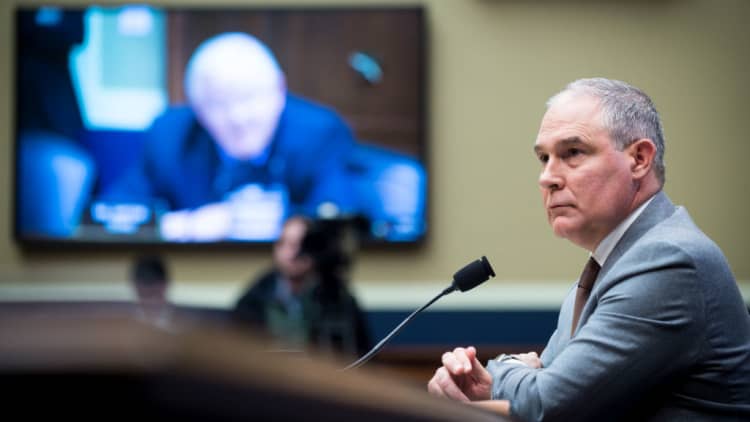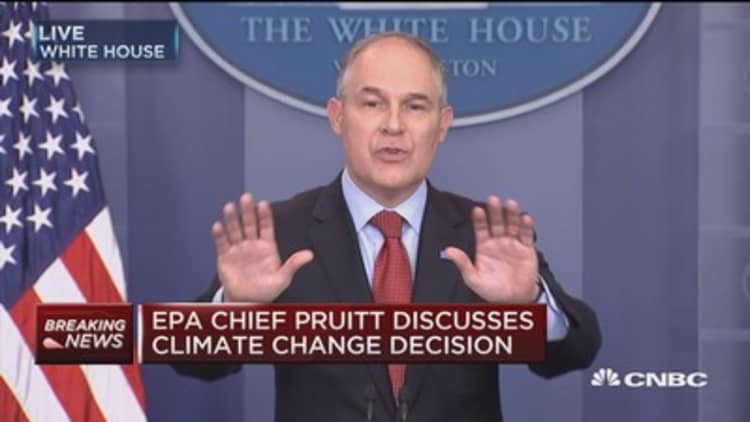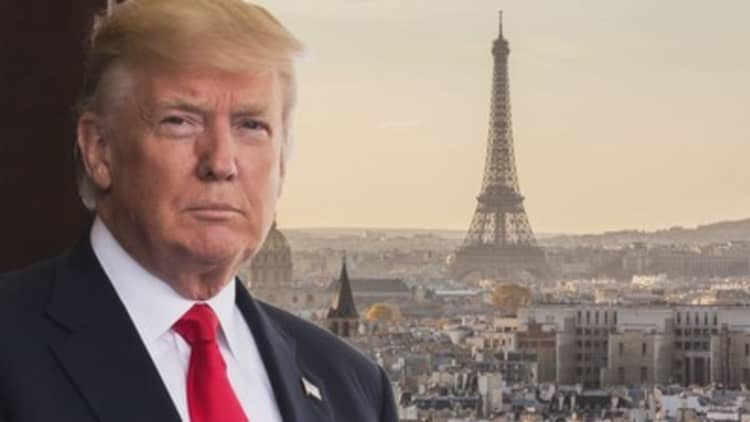
European leaders urged the United States to stay in the Paris climate agreement so they could suppress the American economy, Environmental Protection Agency Administrator Scott Pruitt said Friday.
"The world applauded when we joined Paris, and you know why? I think they applauded because they knew it was going to put this country at an economic disadvantage," he said during a White House press briefing. "And the reason European leaders ... that I think they want us to stay in, is because they know it will continue to shackle our economy," he said.
Pruitt's comments are remarkable because the United States has historically counted many European countries as its closest strategic allies. The U.S. is also the European Union's largest trade partner and its biggest export market.
The United States has a seat at the table. After all, we're the United StatesScott PruittEPA administrator
Pruitt's remarks echoed comments by President Donald Trump on Thursday, when he announced he was pulling the United States out of the Paris Agreement, an international treaty aimed at mitigating the effects of climate change.
Trump said he was open to renegotiating the Paris Agreement or creating an entirely new accord after the United States withdraws.
Leaders of major European nations roundly rejected that prospect. In a statement to CNBC, a European Commission official said, the "Paris Agreement is non-negotiable."
Asked how Trump would negotiate given that European leaders are not interested, Pruitt suggested the United States could not be sidelined.
"The United States has a seat at the table," he said. "After all, we're the United States."

It is unclear what a negotiation would look like. For one, the Paris Agreement is the result of more than two decades of climate diplomacy. And while the accord requires signatories to submit plans to reduce their greenhouse gas emissions, it gives them wide latitude to create plans to meet those targets and does not bind them legally to achieve them.
Pruitt said any deal that requires the United States to set emissions targets that are enforced through domestic regulations or laws should be ratified by the Senate.
The United States has largely reduced its carbon emissions through technological innovation, particularly through advanced drilling methods that have allowed American producers to tap vast supplies of natural gas. Pruitt said the United States could contribute to global emissions reductions by exporting its technology and know-how.
There is significant opposition to the key technology behind the U.S. shale gas boom — a process called hydraulic fracturing — in Europe. The State Department under Hillary Clinton attempted to encourage natural gas fracking in other countries, but the program has had limited success.
Watch: Fact-checking Trump's Paris speech



